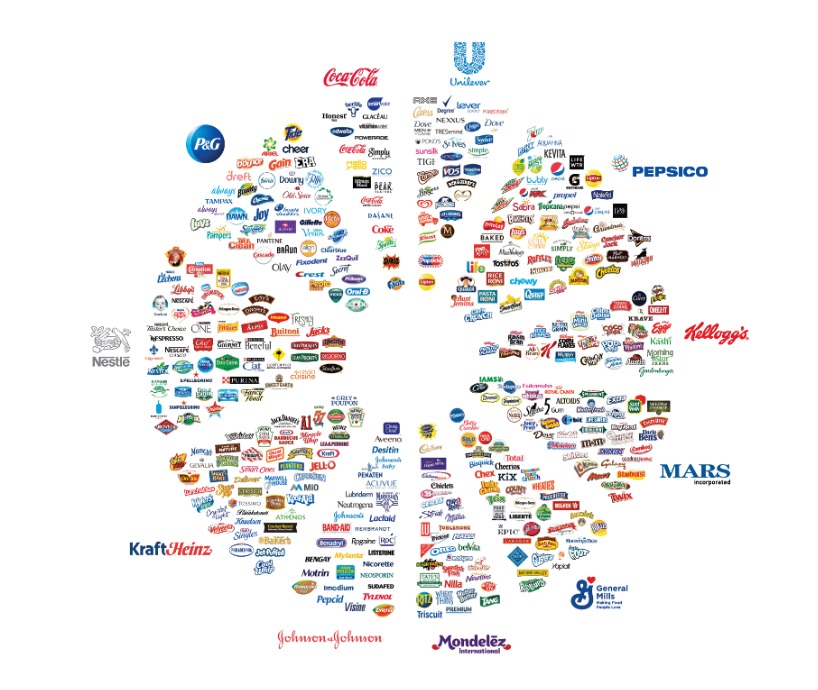I always worked for small to medium-sized companies until moving to California. The first interview I had was at a large, prominent company for a Director of Finance position. Excited for the opportunity having visited their world in Florida, I knew halfway through I wasn’t going to get it. The company’s culture and my worldview didn’t exactly equate, particularly the perpetual inspire optimism. I am more of a realist.
Then a recruiter introduced and encouraged me to consider another big company completely out of my realm of experience. It was there that I worked with some of the best people of my entire career.
We all know someone. They have a gripe with a big company making a blanket generalization that all big companies are inherently bad and then claim they never patron them. As much as some want to avoid any association or reliance on the big, evil corporations, it’s virtually impossible to do so, at least in the modern USA. To convince those who claim to avoid big companies that it’s really not possible, let’s assume a hypothetical scenario.
First, you must assume they have no smartphone or tablet, no social media, no TV/video streaming/gaming, computer (microchip) or Internet as they would have no device to use it on. Let’s say they have an old, obscure flip phone with a small, regional wireless carrier or one of the other brands marketed to seniors. However, working for a small, regional telecom, we didn’t have the infrastructure (cell towers) to offer full regional coverage. Therefore, we had to buy wholesale service to complete our network from one of the large carriers that was recently bought by another large carrier and is now part of another large carrier. Those other small wireless carriers own no cell towers and solely use the networks of the large carriers.
They can’t own a car. Who Owns Which Car Brands? – Consumer Reports Public transportation in most areas is still gas powered. So, they would have to walk or bike or scooter to work and everywhere else.
All the food and other products listed on the chart below, they can’t buy. So, let’s assume they only buy (or grow) vegetables, fruit and meat. Those items still need to be transported to their local grocery store (not Walmart) or butcher via trucks that run on gasoline (see above).

I found a small, noble company selling toilet paper that almost broke my assumptions and killed my scenario, but they advertise on the large social media platforms.
The only instances where someone in the US may not patron large corporations is if they lived in an Amish, Native American or homeless community or they’re on their deathbed.
Watch the rise and fall of the most valuable companies in the world in modern times based on market capitalism, the total dollar value of all outstanding shares of a company at the current market price. It will give you perspective.
Most Valuable Companies in the World – Rise and Fall (1998-2024) (youtube.com)
When one company falls another rises and takes its place. These big, evil corporations are supplying the goods (things) we want and buy. The more we demand them, the more valuable the company becomes. Why have these companies become so big, because they have developed the innovation, scale and means to provide these goods for the masses that demand them at a price people are willing to pay for them.
Take for example, Walmart, which is the largest employer worldwide with 2.1 million employees (scale and means). Grocery sales account for 60% of their revenue in the US with the US being its most profitable business segment. However, operating profit margins fell from 5% in FY 2022 to 3% in FY 2023 with an overall net profit margin of 2%. Walmart Sales And Profits Analysis For FY 2023 — Top 10 Insights (forrester.com)
Incidentally, the food business is not a highly profitable one with only a 1.6% profit margin across the grocery industry for 2023. Grocery industry profit margins fall to pre-pandemic levels: FMI | Grocery Dive
Yet, we all “need” our smartphones with the idolized iPhone that has historically garnered Apple (innovation and means) a profit margin of an estimated 66% (2019). Current profit margin for the iPhone is now estimated at 46%.
There currently are and always have been a handful of companies where the company itself isn’t inherently bad, it is the people who run them. As you may (or may not) recall these epic company downfalls, their leaders are now either dead or in prison.
- Enron – I studied and wrote about this one for an entire semester in grad school.
- WorldCom
- Yahoo
- Tyco
- Bernard L. Madoff Investment Securities
- Theranos
- FTX
We, the US consumer, have the greatest discretion over what we buy and consume as well as what we prioritize. We may not realize this or even admit it, but we often take for granted the innovation, availability and speed to which we can acquire goods. There has only been one time in recent history (2020) that this has been challenged.
The next time you hear someone complain about the big, bad corporate overlords, send them this link. And appreciate the relative ease to which you can acquire an abundance of goods without ever leaving your well-supplied house.
Featured Image – circa March 2017, Taos is winking, and Zia has evidence hanging from his mouth. Photographer – Andra Wauters amazingly captured this.
Footnote: The original article was taken down. This is a revised version.

